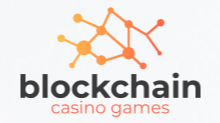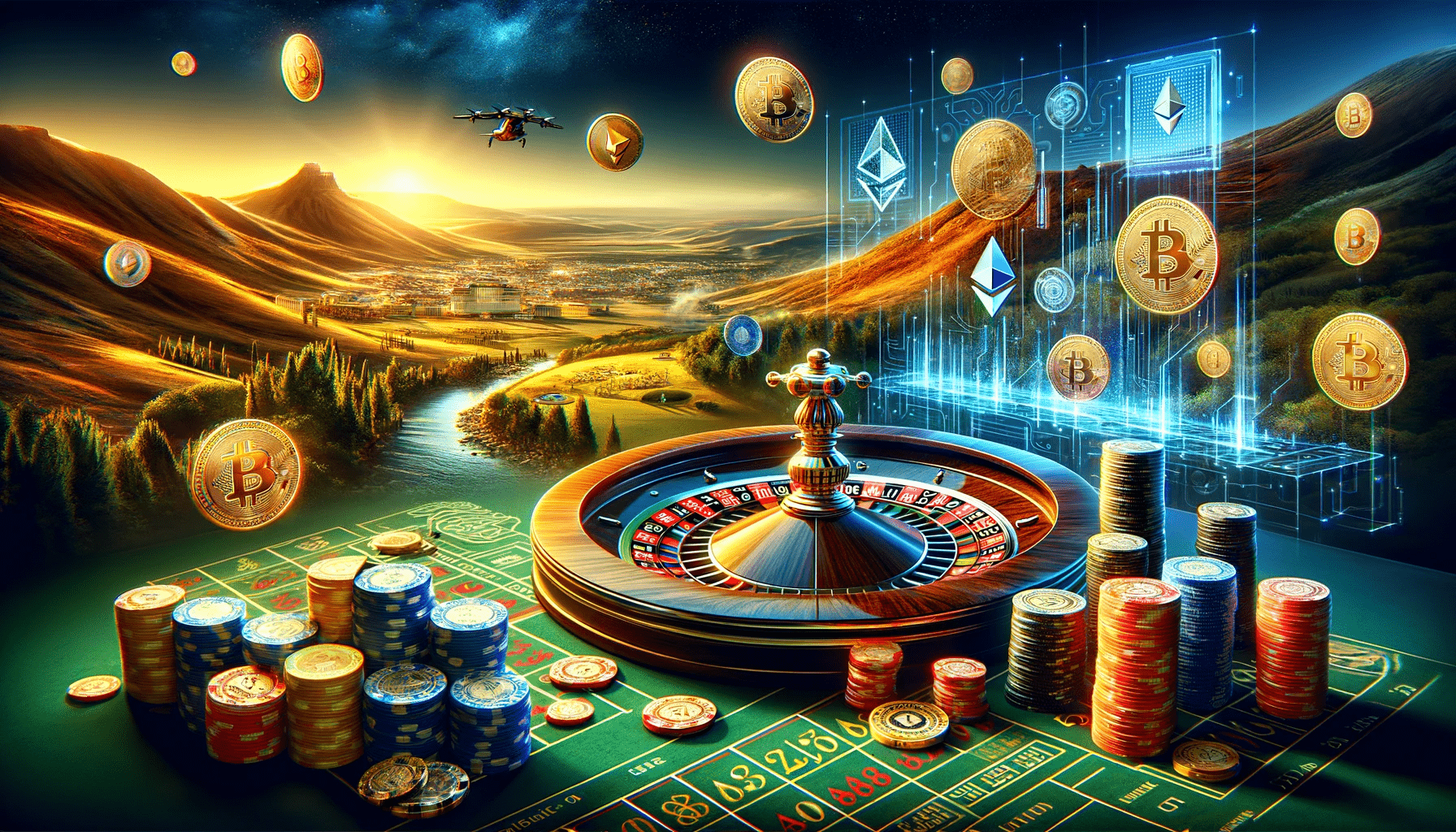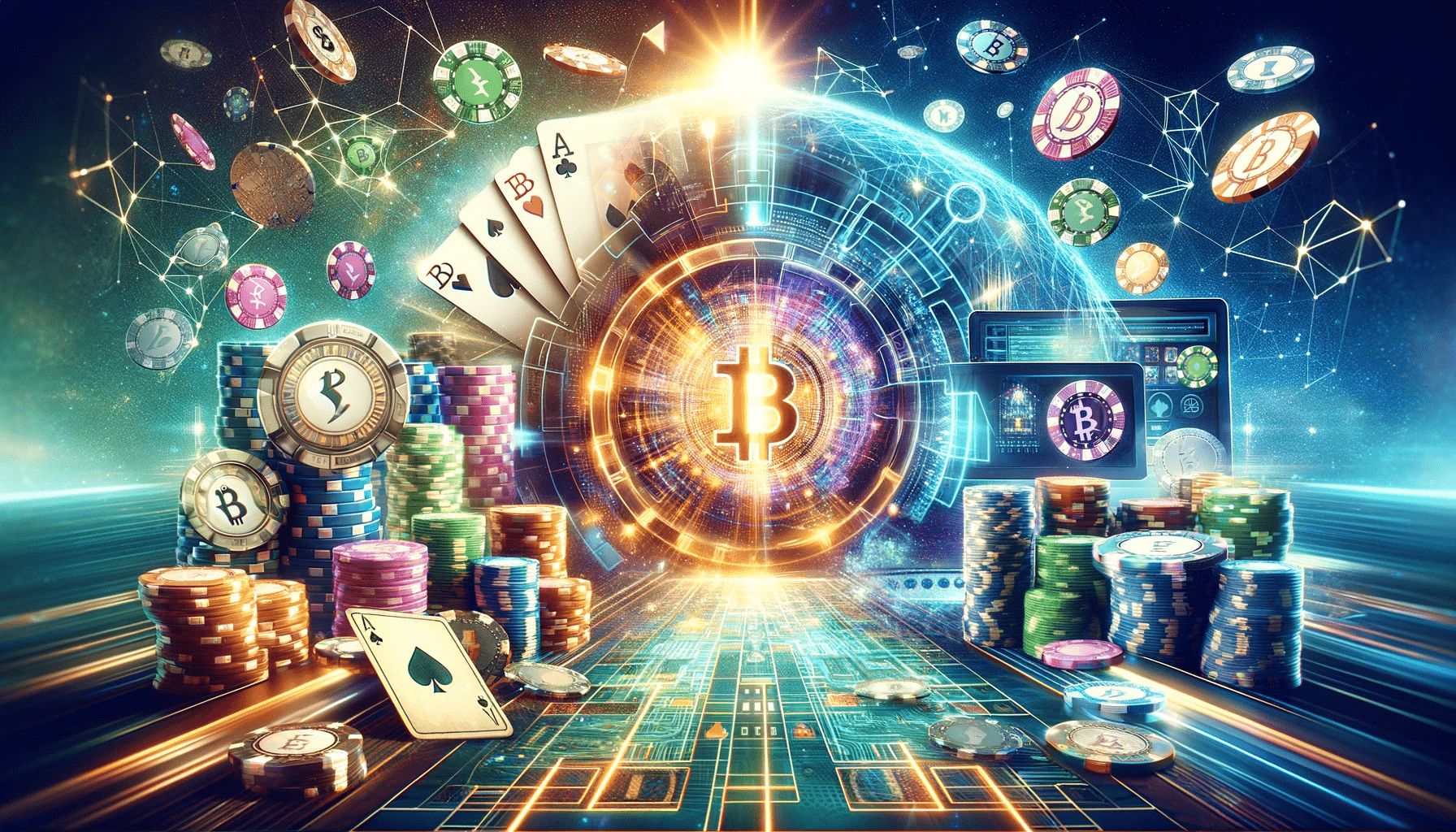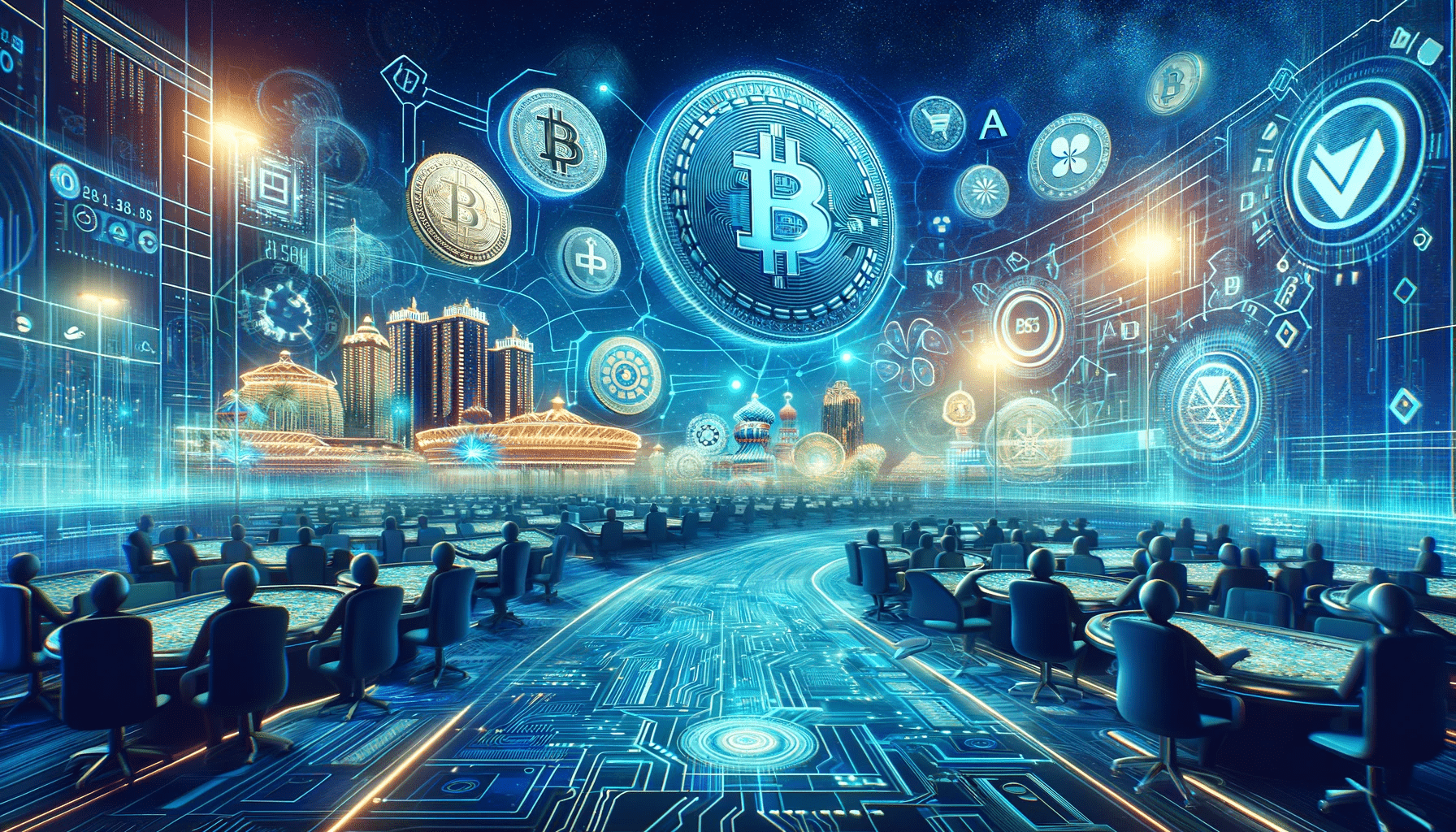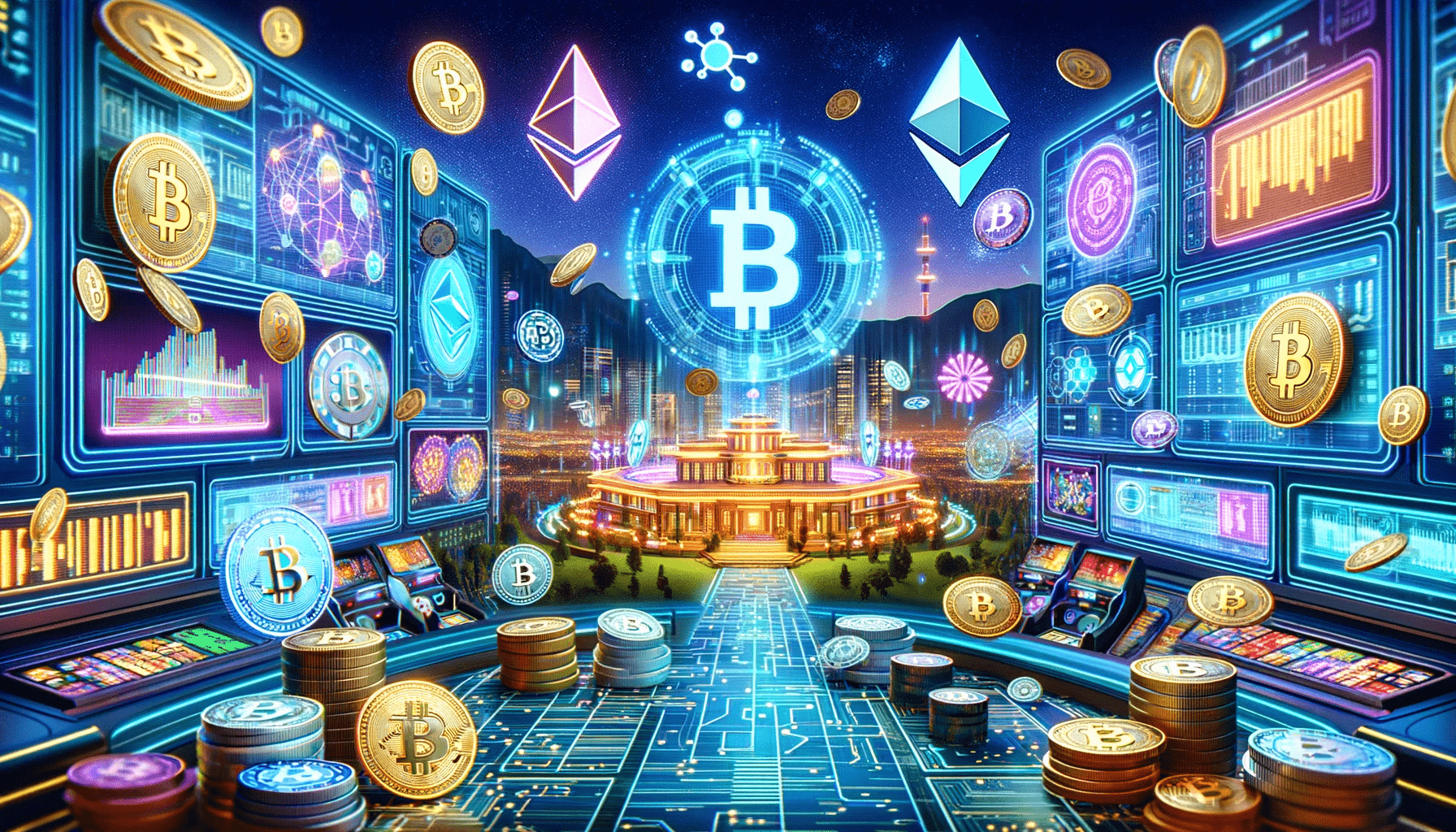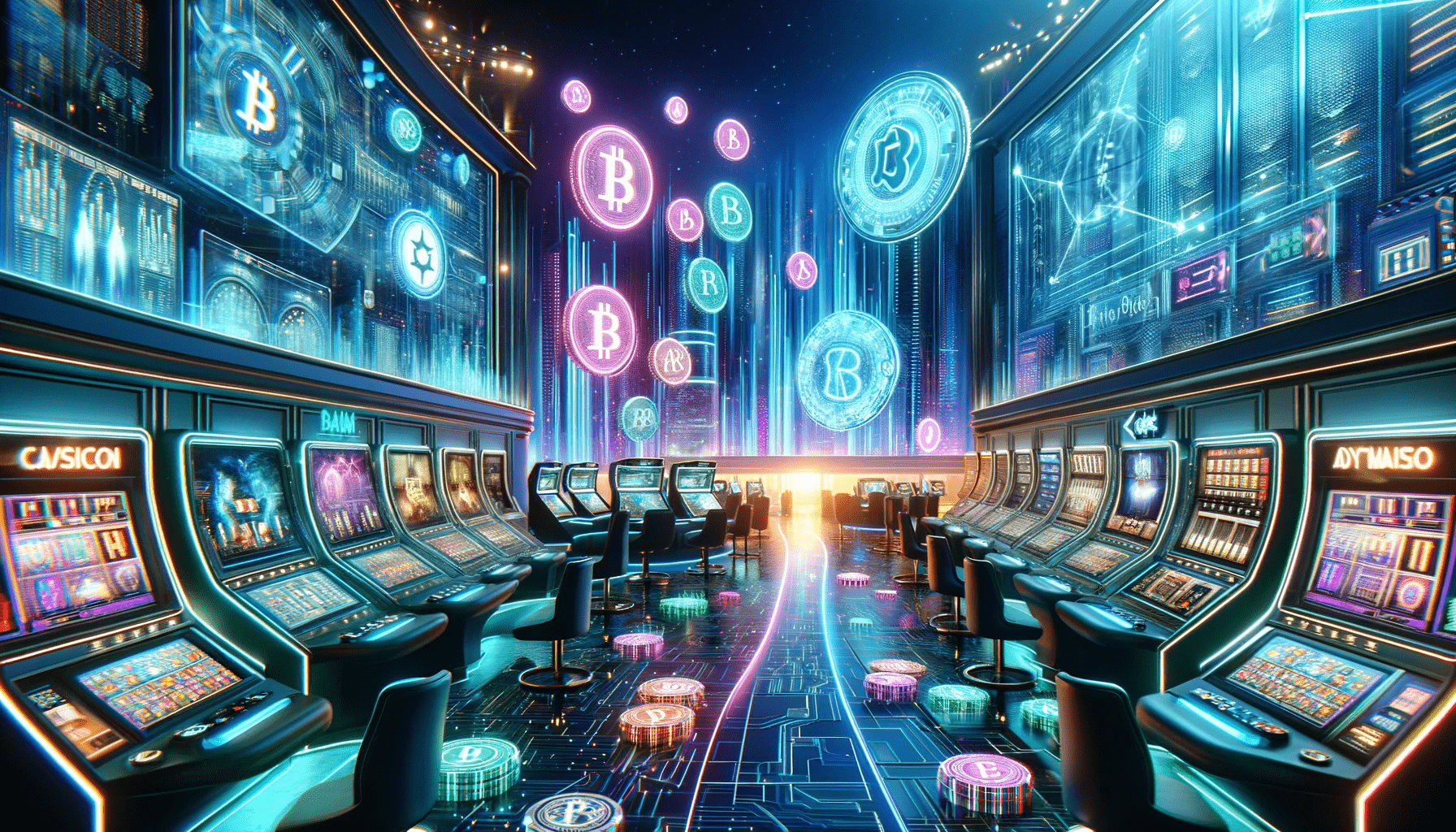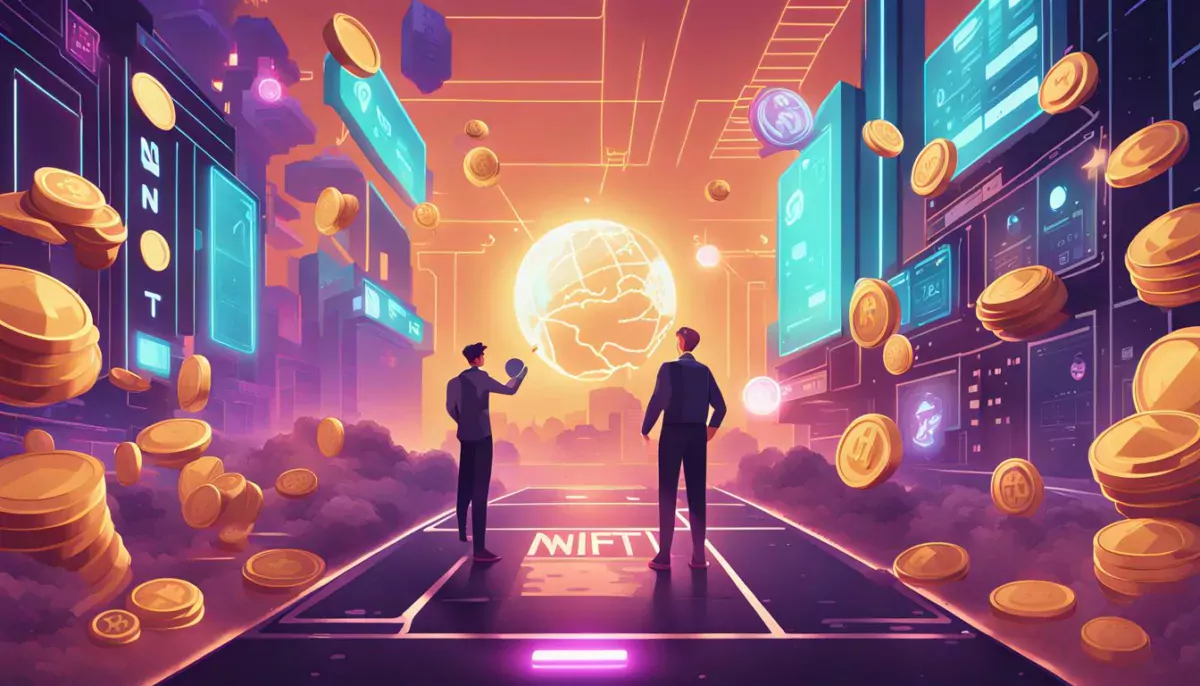
Introduction: The New Era of NFTs in Crypto Games
The gaming landscape is undergoing a tectonic shift, one that is redefining the very essence of play and ownership. This monumental change is fueled by the integration of blockchain technology and the advent of Non-Fungible Tokens (NFTs) as a novel form of digital asset within gaming ecosystems.
The Rise of Blockchain in Gaming
In the conventional gaming sphere, assets like skins, weapons, and characters are often confined to the game’s ecosystem. They are transient, lacking tangible real-world value. However, NFTs are rewriting this narrative. As Joshua Foust astutely observes in his Brookings article, “NFTs have created a unique economy in which players earn surprising amounts of income.” These tokens empower players to truly own, sell, or trade their in-game assets, infusing a financial incentive into the gaming experience.
Traditional vs NFT-based Gaming Assets
Yet, this new frontier is fraught with challenges. The integration of NFTs into AAA games has elicited “negative reactions from the gamer community,” as highlighted in a study published in Procedia Computer Science. The study raises concerns about the energy efficiency of blockchains, the potential for fraud, and currency evasions.
How To: Navigate the NFT Landscape in Crypto Games
Understanding the Play-to-Earn Model: The play-to-earn model, popularized by games like Axie Infinity, is a double-edged sword. It offers financial rewards but also raises ethical and regulatory questions.
The Ethical Dilemma: The fusion of play and labor creates an ethical gray area. This ambiguity creates an unregulated space that exposes players to risks.
Regulatory Oversight: As the NFT-based gaming economy expands, there is a growing need for regulatory frameworks to ensure consumer protection.
Understanding NFTs: A Primer for Crypto Gamers
What Makes NFTs Unique?
Non-Fungible Tokens (NFTs) have revolutionized the gaming industry by introducing a new layer of ownership and value to in-game assets. Unlike traditional gaming assets, which are confined within the game’s ecosystem, NFTs provide players with true ownership, enabling them to trade or sell these assets in a decentralized marketplace.
According to a paper published in the ACM Digital Library, “cryptogames are video games that run on top of a cryptocurrency network. They allow users to own, earn, and trade their virtual assets without relying on a central authority” (source).
Fungible vs Non-Fungible Tokens in Gaming
While fungible tokens like cryptocurrencies are interchangeable and hold the same value, NFTs are unique and can have different values based on their rarity and utility in the game. This uniqueness adds a new dimension to gaming, making each player’s experience distinct and personalized.
Features of Fungible vs Non-Fungible Tokens
| Feature | Fungible Tokens | Non-Fungible Tokens |
|---|---|---|
| Ownership | Centralized | Decentralized |
| Interchangeability | Yes | No |
| Value | Uniform | Variable |
| Use Case | Currency | Assets, Collectibles |
NFT Adoption in Crypto Games
The adoption of NFTs in crypto games has been nothing short of phenomenal. According to an article from IJRASET, “NFTs have the potential to earn money from assets owned in a game, garnering a lot of income and traction in certain countries and territories in South East Asia such as the Philippines, Vietnam, and Hong Kong” (source).
This adoption is not just a fad but a significant shift in how value and ownership are perceived in the digital realm.
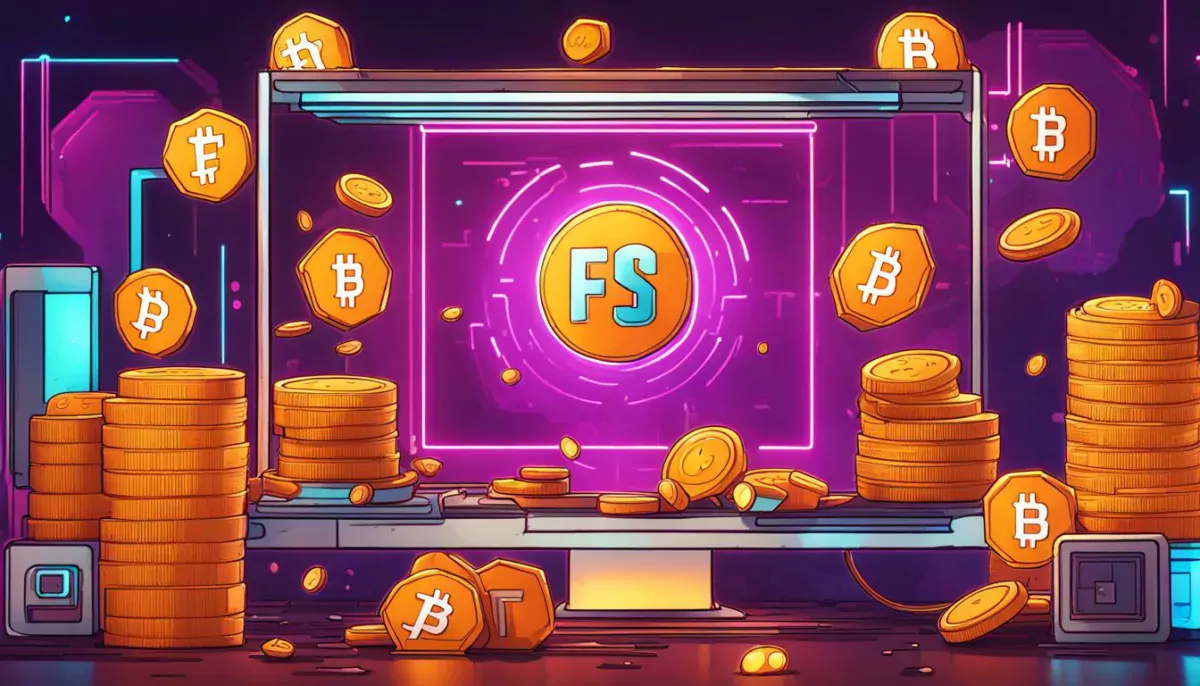
How NFTs Work in Crypto Games
Tokenizing In-Game Assets
The concept of tokenizing in-game assets has revolutionized the gaming industry. By converting in-game items into NFTs, these assets acquire real-world value and can be traded across different platforms. This transformation is not just a technological leap; it’s a paradigm shift. According to a systematic review, NFTs introduce digital scarcity, making digital assets more valuable through a new form of ownership. This has led to a surge in the number of platforms where content creators can monetize things like images, music, and artwork.
Expert Insight: “NFTs introduce digital scarcity, which makes digital assets more valuable via a new form of ownership,” says Hamed Taherdoost, an academic researcher.
The Role of Smart Contracts
Smart contracts play a pivotal role in the NFT ecosystem. These self-executing contracts with the terms directly written into code ensure that transactions are transparent and secure. For instance, a smart contract can be programmed to automatically transfer ownership of an NFT once a certain condition is met, such as the receipt of payment. An article titled “Nonfungible Tokens: A Bubble or the End of an Era of Intellectual Property Rights?” discusses how NFTs could potentially replace the need for a legal code that governs intellectual property rights (IPRs).
Expert Insight: “If the NFT market is substantiated as viable, it may efficiently replace the need for a legal code that governs intellectual property rights,” states Elli Kraizberg, a researcher in financial innovation.
Case Study: NFTs in Popular Crypto Games
The integration of NFTs in popular crypto games like CryptoKitties and Decentraland has demonstrated the immense potential of this technology. These games have successfully created a virtual economy where NFTs serve as tradable assets, each with its unique value and utility. The case studies of such games offer a glimpse into the future, where NFTs could become a standard feature in the gaming industry.
How NFTs Transform In-Game Assets
The flow diagram above illustrates the lifecycle of an NFT in the gaming ecosystem. It starts with the creation of unique in-game assets by the game developer. These assets are then tokenized into NFTs through smart contracts. Once tokenized, they are listed on a marketplace for trading. Players can buy these NFTs, gaining ownership of unique in-game assets. They can then utilize these NFTs within the game or trade them in the marketplace. Finally, these NFTs can be sold for real-world currency, closing the loop. The diagram also includes the various stakeholders involved at each stage of the NFT lifecycle.
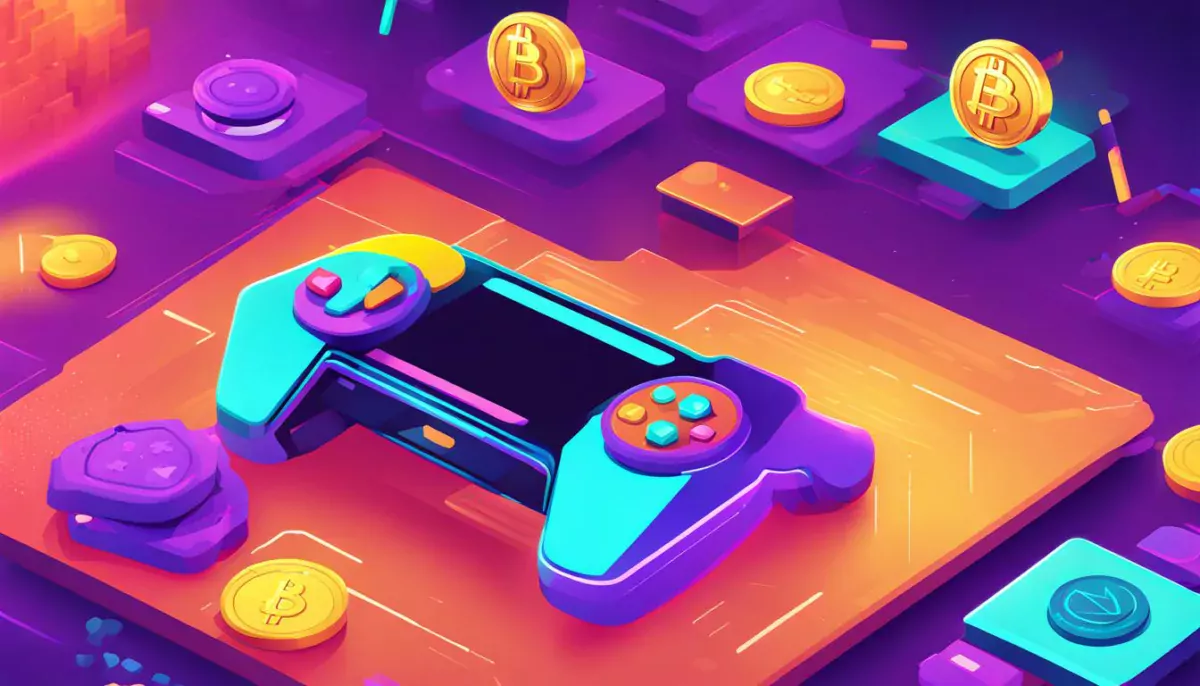
Economic Benefits: NFTs as a Revenue Stream in Crypto Games
The economic landscape of gaming is undergoing a seismic shift, thanks to the integration of blockchain technology and Non-Fungible Tokens (NFTs). According to a study published in the journal New Media Society, the crypto gaming industry received a whopping $4 billion in corporate investments in 2021 alone. Another research article from the National Institutes of Health reveals that the NFT market experienced record sales in 2021, with the volume exceeding $2 billion USD in just the first four months.
New Revenue Avenues for Players
The traditional gaming industry often leaves players at the mercy of in-game purchases and loot boxes. However, NFTs are revolutionizing this by enabling players to truly own, sell, or trade their in-game assets. This ownership is not just theoretical; it’s backed by blockchain’s immutable records. Imagine a world where your in-game sword or avatar could be sold for real-world money. That’s not science fiction; it’s the reality of today’s crypto games.
The “Play-to-Earn” Model in Crypto Games
The “Play-to-Earn” model is more than just a buzzword; it’s a paradigm shift in how we understand value in gaming. Players can now monetize their skills and time spent in a game, transforming leisure time into potential earning time. This model is not just a win for players; it also opens up new avenues for game developers to create more engaging and rewarding experiences.
Benefits of NFTs in Crypto Games
- True Ownership: Players can own, sell, and trade their in-game assets.
- Monetization: The “Play-to-Earn” model allows players to earn real-world money.
- Interoperability: Assets can often be used across multiple games and platforms.
Pros and Cons: NFTs and Player Earnings
Pros
- Financial Empowerment: Players can earn money, not just spend it.
- Asset Liquidity: In-game assets can be easily converted into real-world assets.
- Community Engagement: The value of assets can be determined by the community, not just the developers.
Cons
- Market Volatility: The value of NFTs can fluctuate wildly.
- Environmental Concerns: Blockchain transactions consume a lot of energy.
- Regulatory Uncertainty: The legal framework for NFTs is still evolving.
The integration of NFTs in crypto games is not just a trend; it’s an evolution that is setting the stage for the future of the gaming industry. However, like any technological advancement, it comes with its own set of challenges and ethical considerations. As we move forward, it will be crucial to navigate these complexities carefully to ensure a future where both players and developers can benefit.
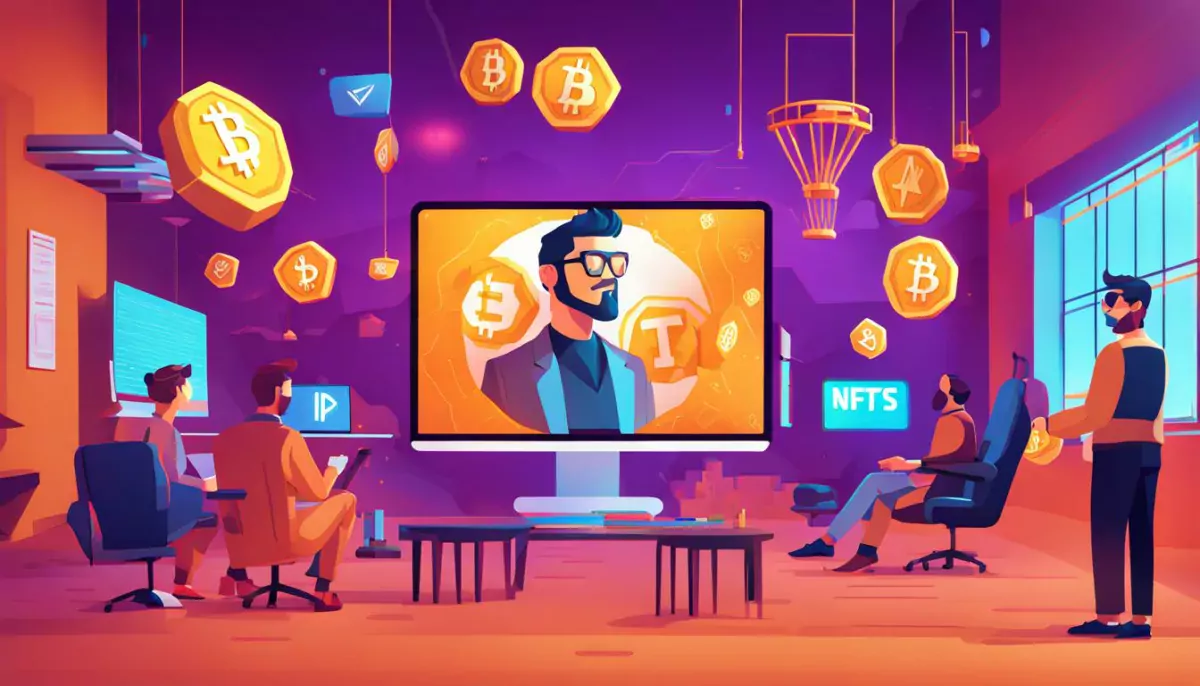
Legal Aspects: NFTs, IP, and Regulations in Crypto Games
Intellectual Property Concerns
The digital frontier of NFTs in gaming is not without its legal complexities. Tom Whittaker, a senior associate in the technology team at independent UK law firm Burges Salmon, highlights that intellectual property (IP) is a significant concern.
“These include gambling, advertising, privacy, and IP to name a few,” he states in an article. The question of who owns the digital assets and how they can be used or resold is a labyrinthine issue that requires meticulous navigation.
Regulatory Compliance
Regulatory compliance is another layer of complexity. Whittaker continues, “If financial services brands want to use NFTs, they will also need to navigate financial regulations about what digital assets they can sell, how, and where.” The legal landscape is evolving, but it’s crucial for both players and developers to understand the rules of the game.
Steps for NFT Compliance in Crypto Games
- Understand the existing IP laws and how they apply to digital assets.
- Consult legal experts to navigate financial regulations.
- Implement smart contracts that are compliant with legal requirements.
- Regularly update compliance protocols to align with evolving regulations.
Navigating IP in the NFT Space
You can view this diagram in a new tab.
The diagram illustrates the journey from acknowledging intellectual property concerns to achieving full compliance with regulations. It serves as a roadmap for navigating the intricate legal landscape surrounding NFTs in crypto games.
Success Stories: Real-world Impact of NFTs in Crypto Games
Games That Successfully Use NFTs
The NFT space has seen a plethora of games that have successfully integrated these digital assets into their ecosystems. One such game is “Axie Infinity,” which has become a cornerstone in the play-to-earn model. According to a study published on JD Supra, “Axie Infinity” has set a precedent for how NFTs can be used to create a sustainable economy within a game.
Personal Stories: From Gamers to NFT Investors
The transition from being just a gamer to becoming an NFT investor is a fascinating journey. A case study featured in the National Law Review highlights the story of a gamer who started with playing “CryptoKitties” and eventually became an investor in various NFT projects. This transformation not only changed the individual’s financial landscape but also opened up new avenues for diversifying income.
Market Share of NFT Crypto Games
You can view this diagram in a new tab here.
The pie chart above provides a visual representation of the market share of various NFT crypto games. “Axie Infinity” leads the pack with a whopping 45%, followed by “CryptoKitties” and “Decentraland.”
Key Insights
- “Axie Infinity” is the market leader, capturing 45% of the NFT gaming market.
- “CryptoKitties” and “Decentraland” are also significant players but lag behind “Axie Infinity.”
- The “Other” category represents a mix of emerging and less popular games, accounting for 10% of the market.
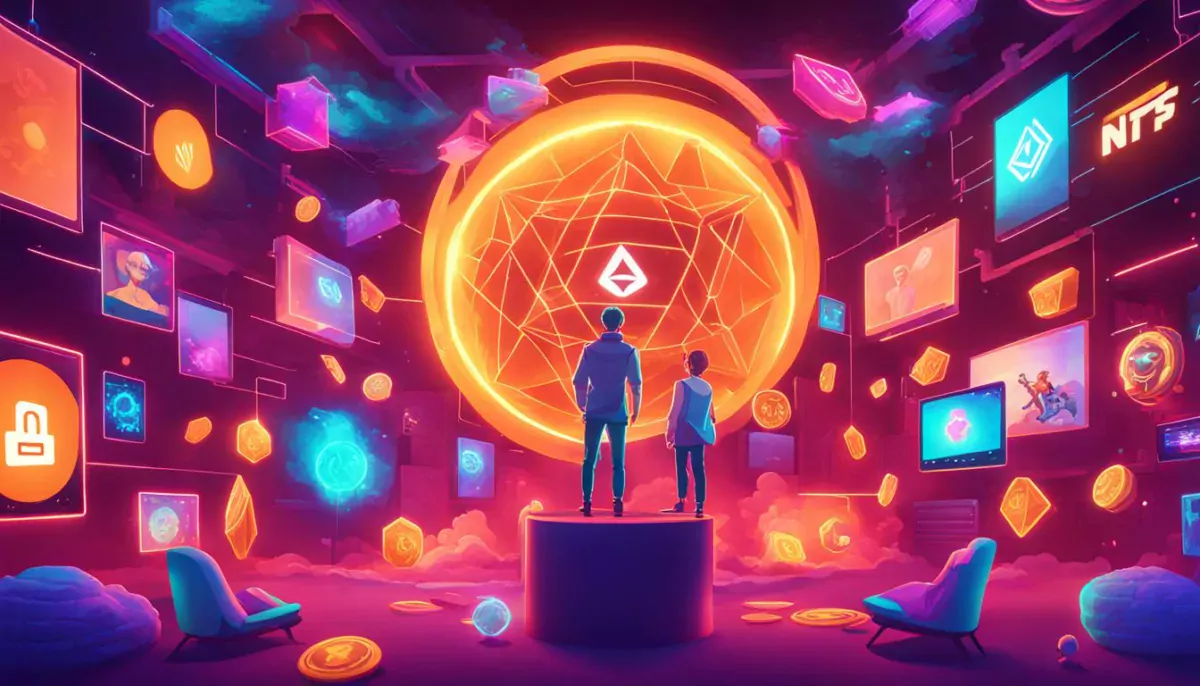
The Future of NFTs in Crypto Games
Upcoming Trends and Predictions
The landscape of NFTs in crypto games is evolving at a breakneck pace. As Blockchain Magazine aptly notes, “NFTs are not just a trend; they are the future of blockchain gaming.” From unique in-game assets to decentralized finance (DeFi) integrations, the possibilities are endless.
Expert Opinions on the Future of NFTs in Gaming
Experts in the field are optimistic about the future of NFTs in gaming. According to Entrepreneur, “NFTs will revolutionize the way we perceive value and ownership in digital spaces, making gaming more lucrative for both developers and players.”
What to Expect in NFT Crypto Gaming
- Ownership: True ownership of digital assets.
- Interoperability: Use assets across multiple games.
- Transparency: Clear transaction history and asset origin.
Future Trajectory of NFTs in Crypto Games
You can view this diagram in a new tab.
The diagram illustrates the key elements that NFTs bring to blockchain gaming: Ownership, Interoperability, and Transparency. These elements further break down into specific advantages like true ownership of assets, cross-platform support, and transparent transactions.
Conclusion: The Transformative Power of NFTs in Crypto Gaming
The advent of NFTs in crypto gaming is not just a fleeting trend but a revolutionary shift that is redefining the very fabric of digital interaction and ownership. From providing new revenue streams to players through the “Play-to-Earn” model to addressing legal concerns around intellectual property, NFTs are poised to bring about a paradigm shift in the gaming industry.
As we’ve seen, experts are optimistic about the future of NFTs in gaming, and the technology is already making waves in the market. The legal landscape is evolving, and as regulatory frameworks catch up, we can expect even more innovation and investment in this space.
Key Takeaways:
- Ownership Revolution: NFTs provide true ownership of digital assets, empowering players like never before.
- Interoperability: The ability to use assets across multiple games is a game-changer.
- Transparency and Trust: Blockchain technology ensures transparent transactions and builds trust among players.
- Legal Frameworks: Intellectual property and regulatory compliance are key considerations for the future.
- Monetization and Revenue: The “Play-to-Earn” model opens up new avenues for players to earn real-world value.
The journey of NFTs in crypto gaming is just beginning, and the road ahead is filled with endless possibilities. As we navigate this new era, it’s crucial to stay informed, understand the risks, and seize the opportunities that come our way. The future is not just bright; it’s transformative.
FAQs
What are NFTs in Crypto Gaming?
How do NFTs differ from traditional gaming assets?
What is the "Play-to-Earn" model?
Are there any legal concerns with NFTs in gaming?
What does the future hold for NFTs in crypto gaming?
- Daniel
